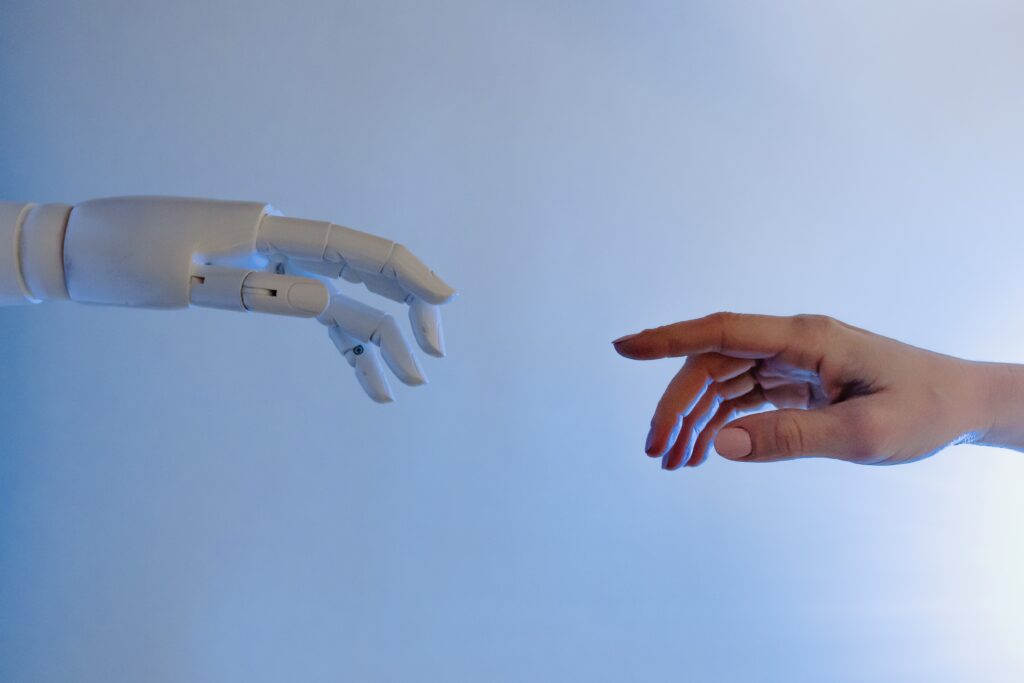
I’ve genuinely enjoyed seeing everyone’s AI avatars and portraits, so recently, I took the bait and did it myself. What a celebration, new technology plus a new social trend is only natural to pique mass interest. We simply cannot help it! Yes, this trend has been fun, and interesting to see everyone’s takes on it. But… I can’t help but wonder what this means for self-worth.
AI, Artificial Intelligence, has taken over many aspects of technology. If anything, it’s becoming so large of an asset that one day it will be difficult to ignore. Businesses and individuals alike are getting the gears turning on how to utilize what AI has to offer.
However, it cannot be ignored how this may affect people psychologically. Will AI streamline new forms of insecurity? Will it form new emotional barriers within personal life and the workplace?
Let’s break this down.

AI and Self-Worth in Our Personal Lives
I utilized AI to follow the current trend of turning selfies into self-portraits curated by the AI app, Lensa. On the surface, it was fun, and I was able to see many aspects of myself – both accurate and inaccurate. It was interesting and opened my eyes to the possibility that the AI ceiling may in fact, just be limitless.
Beyond the surface, however, I started to notice holes in this trend. Based on what people have to say on platforms like Twitter and Instagram, AI and self-worth may be entangled negatively. It is practical to say that AI is not random; it has the intent to create something based on information that was fed to it.
In a nutshell, it attempts to create something perfect.
Many who participate in the trend become quickly aware of this. Why? Because it starts to flare up insecurities based on their real, physical appearances. What happens when you see what you’re technically “supposed” to look like? We’ll feel bad about it, of course.
Just simply type in “AI body dysmorphia” in the Twitter search bar, and you’ll see hundreds of tweets all saying the same thing:
AI influences their self-worth, and not in a good way. All of these tweets mentioned that it has flared up their body dysmorphia in one way or another, and the worst part is that they paid for it.
Additionally, AI will keep using the information that users willingly provide to continue this process.
Whether on purpose or not, this starts a discussion on how to act appropriately when utilizing AI in specific contexts, especially when it comes to people’s appearances and inalienable qualities.
How it Affects Us in the Workplace
It doesn’t just end there. Self-worth is typically involved in the workplace vehemently, and AI is here to contribute to this dynamic possibly.
There are many who base their self-worth on their achievements. Of course, this is not a healthy habit in terms of happiness and wellness, but we also cannot deny that it is a real issue that exists, especially in the workplace.
Now, there is debate about whether or not AI will replace certain work positions, for example, within journalism. AI writing programs are now so advanced that they can take a complex writing prompt and create a sensible article that can totally be passed as if a human wrote it. The same goes for art; many individuals have fed art into these artificial intelligence programs (and yes, many pieces were stolen) so that they can create original false pieces. There have already been participants in art contests who have attempted to use AI art to win.
The bottom line is that there are now certain positions within the workforce that have created job insecurity since the advancements of AI, and it is a hotly debated topic.
The next question to answer is: how will we go about advancing AI while supporting our health and self-worth? As more research is conducted on AI, we can hope to expect more research on the psychological aspects of it as well.





